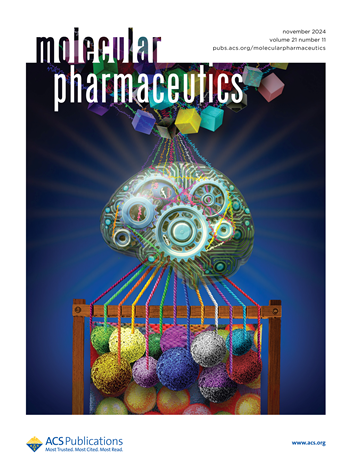Antiallergic Treatment of Bariatric Patients: Potentially Hampered Solubility/Dissolution and Bioavailability of Loratadine, but Not Desloratadine, Post-Bariatric Surgery
Abstract
Gastrointestinal anatomical/physiological changes after bariatric surgery influence variables affecting the fate of drugs after ingestion, and medication management of these patients requires a thorough and complex mechanistic analysis. The aim of this research was to study whether loratadine/desloratadine antiallergic treatment of bariatric patients is at risk of being ineffective due to impaired solubility/dissolution. The pH-dependent solubility of loratadine/desloratadine was studied in vitro, as well as ex vivo, in gastric content aspirated from patients before versus after bariatric surgery. Then, a biorelevant dissolution method was developed to simulate the gastric conditions after sleeve gastrectomy (SG) or one-anastomosis gastric bypass (OAGB), accounting for key variables (intragastric volume, pH, and contractility), and the dissolution of loratadine/desloratadine was studied pre- versus post-surgery. Dissolution was also studied after tablet crushing or syrup ingestion, as these actions are recommended after bariatric surgery. Finally, these experimental data were implemented in a newly developed physiologically based pharmacokinetic (PBPK) model to simulate loratadine/desloratadine PK profiles pre- versus post-surgery. For both drugs, pH-dependent solubility was demonstrated, with decreased solubility at higher pH; over the pH range 1–7, loratadine solubility decreased ~2000-fold, and desloratadine decreased ~120-fold. Ex vivo solubility in aspirated human gastric fluid pre- versus post-surgery was in good agreement with these in vitro results and revealed that while desloratadine solubility still allows complete dissolution post-surgery, loratadine solubility post-surgery is much lower than the threshold required for the complete dissolution of the drug dose. Indeed, severely hampered loratadine dissolution was revealed, dropping from 100% pre-surgery to only 3 and 1% post-SG and post-OAGB, respectively. Tablet crushing did not increase loratadine dissolution in any post-bariatric condition, nor did loratadine syrup in post-OAGB (pH 7) media, while in post-laparoscopic SG conditions (pH 5), the syrup provided partial improvement of up to 40% dissolution. Desloratadine exhibited quick and complete dissolution across all pre-/post-surgery conditions. PBPK simulations revealed pronounced impaired absorption of loratadine post-surgery, with 84–88% decreased Cmax, 28–36% decreased Fa, and 24–31% decreased overall bioavailability, depending on the type of bariatric procedure. Desloratadine absorption remained unchanged post-surgery. We propose that desloratadine should be preferred over loratadine in bariatric patients, and as loratadine is an over-the-counter medication, antiallergic therapy after bariatric surgery requires special attention by patients and clinicians alike. This mechanistic approach that reveals potential post-surgery complexity, and at the same time provides adequate substitutions, may contribute to better pharmacotherapy and overall patient care after bariatric surgery.





